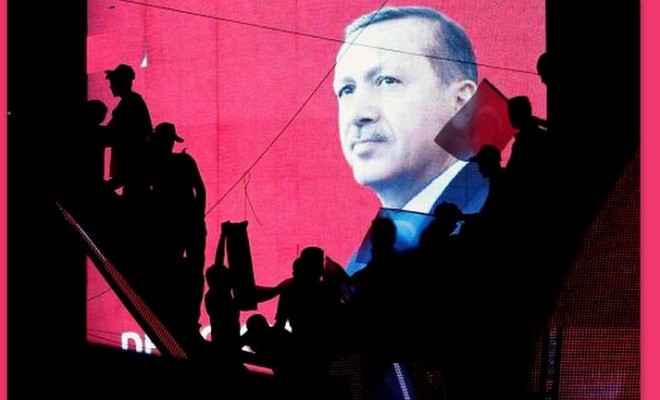
Will Erdogan lash out in Europe?
President Recep Tayyip Erdogan is notoriously thin-skinned. He responds to even the slightest criticism, with outrage and repression. While the world may view Turkey’s leader as a moral midget, Erdogan sees himself as a giant on the world stage, deserving of the same respect in Berlin, Amsterdam, and Brussels that he demands in Istanbul and Ankara. He simply cannot broker European disagreement with his pronouncements and policies, believing that dissent is an insult to his self-perceived infallibility, wisdom, and position.
It is against this backdrop that European leaders should take the latest threat emerging from Turkey seriously. Turkish nationalist Sedat Peker, often described by the Turkish press as a mafia leader, initially threatened to use the Turkish diaspora in Europe to destabilize host countries but, more recently, has suggested that Turkey should seek to assassinate the prime ministers and presidents of European countries that defy Erdogan.
Given Peker’s past convictions and established ties to the underworld, that’s not necessarily an idle threat, nor can European officials take it as bluster given Turkish espionage on Turkish Kurds, journalists, and dissidents. Nor should Europe be alone in their concern. Wikileak’s exposure of Erdogan’s son-in-law’s emails show Turkish organizations and paid agents have also engaged in such actions in the United States.
There is precedent here. A victory for the ‘yes’ camp in Turkey’s referendum would simply culminate Erdogan’s slow motion revolution to reorient Turkey away from the West and to close the door on the era of Ataturk, modern Turkey’s secular founder. Simply put and without hyperbole, the shift of Turkey back to the unabashed Islamist camp would mark as much of a sea change as Iran’s Islamic Revolution.
After the Islamic Revolution in Iran, Iranian assassins traversed Europe hunting down those who opposed the new regime. Ayatollah Khomeini saw himself as God’s representative on earth and could tolerate no dissent. There is no reason why Erdogan could not engage in the same behavior. Indeed, it appears Erdogan is considering such a move. While the Erdogan regime cracked down on Peker for threatening a “bloodbath” against academics who signed a petition calling on security forces to stop targeting Kurds in Turkey’s southeast, Erdogan has been noticeably silent in restraining Peker’s threats to European leaders. Nor do states take the risk to conduct surveillance on targets if they are not at least considering further action.
Did Erdogan stage the coup?
It’s been almost nine months since Turkish President Recep Tayyip Erdogan crushed a coup attempt and then declared a state of emergency, imprisoning opposition politicians, arresting tens of thousands of perceived opponents, journalists, and civil society leaders, confiscating opponents’ businesses and bank accounts, and cracking down on the remnants of the free press. Erdogan called the coup attempt and the excuse to crush his opponents “a gift from God.”
But was the coup really “a gift from God” or was it Erdogan’s gift to himself? Was it Turkey’s equivalent of the Reichstag Fire?
Even before the smoke cleared, Erdogan blamed exiled cleric (and one-time ally) Fethullah Gulen for masterminding the coup attempt. Turkish officials demand his extradition, yet neither the State Department nor the Justice Department have found the evidence presented by their Turkish counterparts to be credible, coherent, or comprehensive. The United States is not alone in this: German intelligence and the British government have likewise cast doubt on the official Turkish narrative.
Περισσότερα εδώ:
Πηγή: American Enterprise Institute





